Search
Search Results
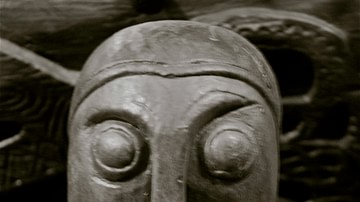
Definition
Vikings
The Vikings were originally diverse Scandinavian seafarers from Norway, Sweden, and Denmark (though other nationalities were later involved) whose raids and subsequent settlements significantly impacted the cultures of Europe and were felt...
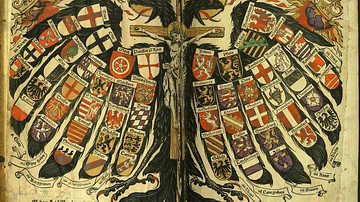
Definition
Holy Roman Empire
The Holy Roman Empire officially lasted from 962 to 1806. It was one of Europe’s largest medieval and early modern states, but its power base was unstable and continually shifting. The Holy Roman Empire was not a unitary state, but a confederation...

Definition
1811 German Coast Uprising
The 1811 German Coast Uprising (8-11 January 1811) was the largest slave revolt in US history involving between 300-500 enslaved and free Blacks in the Louisiana parishes of St. John the Baptist, St. Charles, and Jefferson in the Territory...
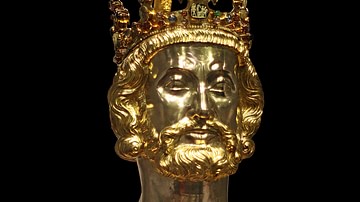
Definition
Charlemagne
Charlemagne (Charles the Great, also known as Charles I, l. 742-814) was King of the Franks (r. 768-814), King of the Franks and Lombards (r. 774-814), and Holy Roman Emperor (r. 800-814). He is among the best-known and most influential figures...
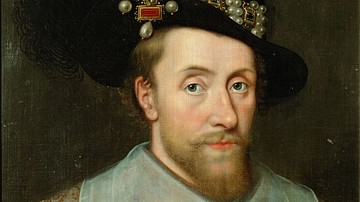
Definition
James I of England
James I of England (r. 1603-1625), who was also James VI of Scotland (r. 1567-1625), was the son of Mary, Queen of Scots, and he unified the thrones of Scotland and England following the death of Queen Elizabeth I of England (r. 1558-1603...

Definition
Gabriel's Rebellion
Gabriel's Rebellion (30 August 1800) was a carefully planned slave revolt in Virginia orchestrated by the literate slave blacksmith Gabriel (l. c. 1776-1800), property of one Thomas Prosser, and so referred to as Gabriel Prosser. The plans...
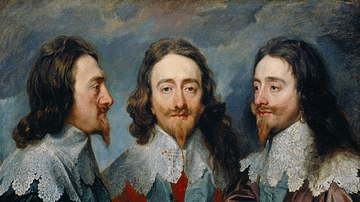
Definition
Charles I of England
Charles I of England (r. 1625-1649) was a Stuart king who, like his father James I of England (r. 1603-1625), viewed himself as a monarch with absolute power and a divine right to rule. His lack of compromise with Parliament led to the English...
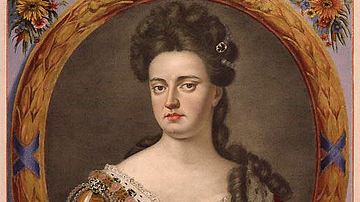
Definition
Anne, Queen of Great Britain
Anne reigned as Queen of England, Scotland, and Ireland from 1702 and then, following the 1707 Act of Union, over a united kingdom as Queen of Great Britain until her death in 1714. The last of the Stuart monarchs, Anne's reign witnessed...
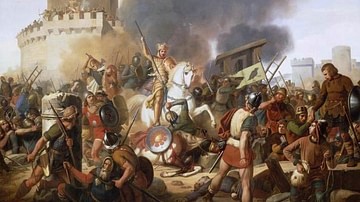
Definition
Kingdom of West Francia
The Kingdom of West Francia (843-987 CE, also known as The Kingdom of the West Franks) was the region of Western Europe that formed the western part of the Carolingian Empire of Charlemagne (Holy Roman Emperor 800-814 CE) known as Francia...
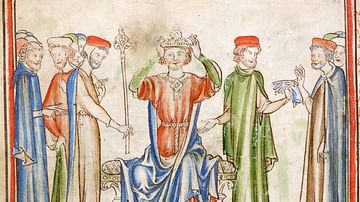
Definition
Harold Godwinson
Harold Godwinson (also spelt Godwineson) reigned briefly as King Harold II of England from January to October 1066 CE, the momentous year which witnessed the Norman conquest and end of 500 years of Anglo-Saxon rule. Harold had been, as the...